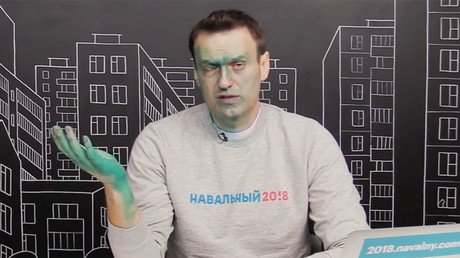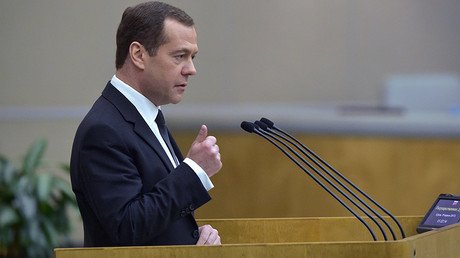Did Kremlin help Navalny leave Russia? Media buzz as opposition figure gets intl passport in 2 days
The Russian media sees the Kremlin’s hand behind Aleksey Navalny’s ability to get an international passport in just two days. The Russian anti-corruption blogger and opposition activist then allegedly left for Barcelona despite a suspended sentence.
Russia’s MK daily called the speed of Navalny’s application processing “really astonishing” and assumed that the Russian president’s administration might have played a role.
On May 2, Navalny reportedly filed a request directly to top officials of the president’s administration, asking them to assist him in acquiring an international passport, the MK said, citing some unidentified “well-informed sources.”
The Kremlin then immediately handed his request over to the Russian Interior Ministry, furnishing it with a cover letter in which it allegedly asked the ministry to process the request, MK adds.
Navalny then was asked to submit the required relevant documents and received his travel passport the next day, even though they are usually issued “within a month” after receipt of the necessary papers.
Conspiracy theories were further fueled by the fact that Navalny is currently serving a five-year suspended sentence that could technically prevent him from receiving an international passport. In fact, his application was rejected on that ground in 2015, and also in 2013, when he was still under investigation.
In addition, just before finally receiving his international passport, the Russian Federal Penitentiary Service had warned the opposition figure that he could be banned from leaving Russia for legal reasons, MK reports.
The daily also reported that the anti-corruption blogger turned politician had not only received the passport, but also managed to fly to Barcelona, Spain, where he was planning to undergo a course of treatment for his eyes.
The Kremlin officially denied any involvement in the case after the speculations began appearing in the Russian media, however. The Russian president’s spokesman, Dmitry Peskov, dismissed all such rumors on Sunday, telling RIA news agency that the “Kremlin does not issue passports.”
In the meantime, Navalny confirmed that he had, indeed, received an international passport, saying it had come as a surprise to him. “I thought it was some prankers… but it was true: I came and got it,” he wrote on his official website. He did not say anything about whether he had really traveled to Spain, however.
Earlier, Navalny announced plans to travel to Spain or Switzerland for treatment after he suffered an eye injury when he was splashed with green antiseptic dye in April.
On March 26, Navalny organized protests in Moscow and several other Russian cities to demand that the government respond to his corruption accusations against Russian Prime Minister Dmitry Medvedev.
The opposition activist rejected the venue offered by the Moscow authorities, however, which made the rally, at which 8,000 people showed up, an illegal gathering.
Police detained over 500 people for violating public order and public protest laws as a result, and Navalny, as well as several of his associates, was sentenced to a short-term administrative arrest for participating in an unsanctioned protest.
Navalny is also one of three potential candidates for the Russian presidency in 2018 that have already declared their intention to run. Vladimir Zhirinovsky, the head of the Liberal-Democratic Party, and Grigory Yavlinsky, the founder of the Yabloko Party, are the other two.
Under Russian law, Navalny technically cannot run because his five-year suspended sentence won’t expire before the next election, but the activist has vowed to contest this rule in Russia’s Constitutional Court.














